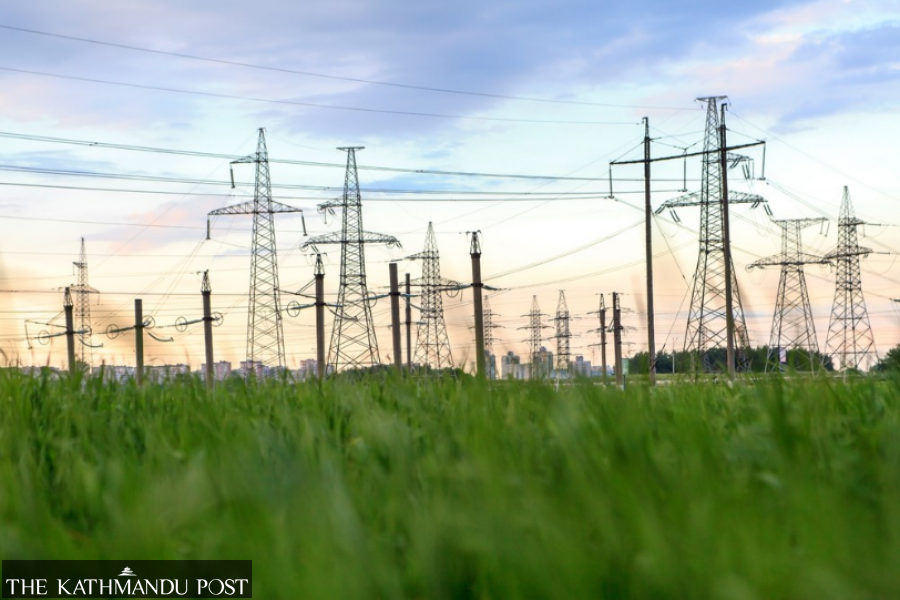National
Cost-cutting measures to be taken to build transmission lines under MCC
MCA-Nepal cancelled first round of bids after the lowest bids remained 66 percent higher than the estimated cost.
Prithvi Man Shrestha
The Millennium Challenge Accounts-Nepal has said it is redesigning the bid document to reduce the cost of building transmission lines under the Millennium Challenge Corporation, after it was forced to cancel the bidding process due to high prices quoted by bidders.
In mid-October last year, the MCA-Nepal, the special purpose vehicle established to implement the MCC-funded projects, cancelled all the bids it received for the construction of a 315-km 400kV transmission line as the lowest bid itself turned out to be 66 percent higher than the estimated cost.
It marks a major setback for implementing the MCC Compact, whose entry into force (EIF) was launched on August 30 after overcoming the prolonged political quagmire over the MCC.
The EIF means the project implementation spans exactly five years from the day it kicked off.
The redesign will address the most significant drivers of cost from the first round of bidding, allowing the bidders to provide reduced budget estimates for the next tender, the MCA-Nepal said in a written reply to the Post. “The MCA-Nepal remains committed to ensuring the transmission lines are built on time, within budget, and in accordance with MCA-Nepal and MCC’s environmental and social standards.”
The MCA-Nepal didn’t exactly confirm the significant drivers of the cost but a source close to the agency told the Post that the talks were ongoing to relax the standards so as to bring down the cost of constructing the transmission line.
“There are talks about downgrading the standards to some extent to reduce the cost,” the source told the Post. “It does not mean there would be no high-quality transmission lines.”
The US embassy, in a written reply to the Post, made it clear that there would be no compromise on standards required to construct the quality transmission lines.
On November 28, 2022, the MCA-Nepal issued a tender notice to commission a 315-km transmission line in three separate lots.
The first lot was for constructing the Lapsephedi-Ratmate-New Hetauda section, and the second was for the Ratmate-New Damauli section. The third lot consisted of the New Damauli-New Butwal section as well as the New Butwal-Nepal/India border section.
According to MCA-Nepal, an estimated budget of $220.60 million covering all three lots was made public during the bidding process.
But the lowest combined price quoted for the three packages by the bidders stood at $365.93 million, which is nearly 66 percent more than the estimate, according to the details made available by MCA-Nepal.
Some experts pointed out flaws in the Environmental Impact Assessment (EIA) that contributed to the high bid prices. According to the EIA report, MCA-Nepal will not build an access road. The report says porters, helicopters and animals would be used so as to fell fewer trees and to create local employment.
It also said the number of transmission pylons would be reduced by 20 percent, and the average height and length of the transmission line increased to reduce the project’s impact.
Asked about the matter, the MCA-Nepal said it had assigned the supervision engineer to review, among other things, the access to construction sites and their recommendation would reflect in the new bid documents.
“Following the cancellation of the procurement, MCA-Nepal assessed the reasons for the higher than expected prices based on feedback provided by the engaged bidders,” said the MCA-Nepal. “That information is being utilised to revise the technical design and environmental specifications for the transmission line.”
The MCA-Nepal earlier told the Post that it had not anticipated that the bid amounts exceeding the estimated cost would emerge as a stumbling block to project implementation.
But right after the EIF, forced bid cancellation raised questions over whether the transmission line project would be completed on time given the reduced time available to implement the project and possible hindrances in the land acquisition process too. The US embassy has expressed optimism about the timely execution of the works due to a collaborative effort among the stakeholders.
“The MCA-Nepal is working closely with the supervisory engineer, the MCA Board, and the MCC to complete the new bid documents as early as possible, including a revised timeline,” the embassy said. “We believe this collaborative process will allow for all of the issues to be factored in including an agreement on the completion timeline.”




 17.29°C Kathmandu
17.29°C Kathmandu















